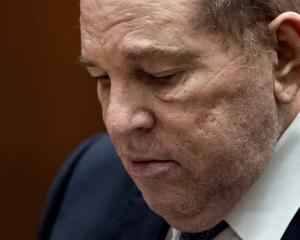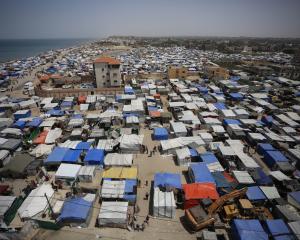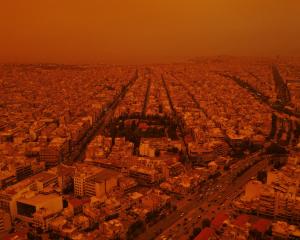North Korea said it successfully tested a miniaturised hydrogen nuclear bomb on Wednesday. Atomic weapons experts cast doubt on the isolated nation's ability to make such an advance but it rang international alarm bells all the same.
"The members of the Security Council ... recalled that they have previously expressed their determination to take 'further significant measures' in the event of another DPRK (North Korea) nuclear test," Uruguay's UN ambassador Elbio Rosselli, president of the council this month, told reporters on Wednesday.
"In line with this commitment and the gravity of this violation, the members of the Security Council will begin to work immediately on such measures in a new Security Council resolution," he said, calling the test "a clear violation of Security Council resolutions."
Rosselli spoke after an emergency council session requested by the United States, Japan and South Korea.
UN Secretary-General Ban Ki-moon called North Korea's fourth nuclear test "deeply troubling" and "profoundly destabilizing for regional security."
"This test once again violates numerous Security Council resolutions despite the united call by the international community to cease such activities," Ban, a former South Korean foreign minister, told reporters.
Japanese Foreign Minister Fumio Kishida told reporters: "We plan to work with other countries so that a resolution with strong content can be adopted at the UN Security Council as swiftly as possible." Japan is a member of the council for the next two years.
The United States believed North Korea conducted a nuclear test, the State Department said on Wednesday, but echoed skepticism of North Korea's claim to have tested a hydrogen bomb.
"The US government judges North Korea to have conducted a nuclear test yesterday," spokesman John Kirby said, repeating previous White House statements that initial US analysis was not consistent with North Korea's claim to have tested a hydrogen bomb. "We strongly condemn this violation of UN Security Council resolutions."
Asia analysts said China would likely support more UN sanctions, even though it is North Korea's neighbor and main ally, but within limits, for fear of destabilising what has long been a physical buffer between it and US-backed South Korea.
Washington, too, has been cautious. While US sanctions have aggressively targeted Pyongyang's military and weapons programme, the US has not imposed crippling economic sanctions, in part because these would hit Chinese firms and banks that do the vast bulk of business with North Korea, former US officials said.
Russia's UN ambassador Vitaly Churkin told reporters that Moscow was calling for "cool heads" and a "proportionate response" to the nuclear test.
Several Western diplomats said that if the latest North Korean nuclear test was confirmed, the US, European council members and Japan would seek to expand existing UN sanctions against Pyongyang.
Pyongyang has been under UN sanctions due to its nuclear weapons program since it first tested an atomic device in 2006.
The UN blacklist includes 20 entities and 12 individuals, as well as an international ban on the export of luxury goods and missile and nuclear technology to North Korea. Individuals are barred from international travel and the assets of all entities and persons on the blacklist are to be frozen.
One senior Western diplomat said possible additions to the UN sanctions list could be foreign representatives of the North Korean organisation that administers its nuclear developments and people linked to one of its key procurement companies.
"All of this depends on the appetite of the council, particularly the Chinese position," he said. "There are more things we could do in terms of listing more people, brokers and intermediaries, broaden out the circle of people on the list."












